Increase Human Resources Through Library
Writer:
Hendrikus Franz Josef, M.Si
Regional Library and Archive Office of
2019
Abstract
The availability of quality human resources is one of the important factors for the progress of a nation and state. This starts from the awareness that quality human resources will have the ability to build critical awareness of the existence of the self and the environment, which will give birth to innovation and creativity to organize life towards a better direction. Quality human resources are not necessarily obtained genetically or based on biological transmission due to hereditary factors, but must be pursued through a planned, systematic and continuous development process. In the context of state life, the role of the state is very important to strive for the availability of quality human resources will be the subject in order to direct the life that aspired. Here we need a strong political will from the government and a high awareness of the community to see the importance of developing the quality of human resources as one of the basic assets in order to achieve a better life. The total population of
Preface
Talking about Human Resource Development really cannot be separated from the culture of reading and education. Culture of reading and education is an important process in the development of human resources. Reading and education have two objectives at once, namely (a) as a social activity (collective); it means that education is aimed at the realization of social values; (b) self-realization, namely the desire of individuals to develop their potential in order to achieve a better life for themselves and others in society towards the future.
Educated humans are also called humans who have experienced the process of empowerment so that they appear as human beings who are aware of their abilities, mature emotions, have high achievement motivation and become independent individuals. They are able to think critically, innovative and creatively able to work productively and be able to work productively, efficiently and effectively. The development and expansion of the field of formal education that is quality and covers all levels of society in order to get the opportunity to obtain education especially primary, secondary education and other training are important policies in the process of community empowerment. Through the culture of reading and education, people will realize that they have the opportunity to increase the ability and productivity of socioeconomic, sociopolitical, and sociocultural.
The state as an institution that has the authority to administer and process existing resources and is responsible for the welfare of society, is obliged to pay attention to the opportunities of each of its citizens to gain access to reading materials and education properly, especially formal education. Therefore, libraries should receive top priority in budget allocation. During this time, the government as the state organizer, seems to prioritize the development of the economic sector compared to the development of libraries and education. This can be seen from the relatively limited library and education budget allocation.
The relatively low budget allocation for libraries and education is one of the factors causing the low quality of Indonesian human resources. This can be seen from the Human Development Index,
Part I
The Culture of
Reading culture is influenced by several things such as educational background, income level and available facilities. A person's educational background greatly influences the level of reading culture, because one's education will affect his ability to read and write, speak and digest reading material. The results of research on reading interest in Indonesian society show that the higher a person's formal education, the higher the frequency of reading both books, magazines and newspapers. From this research, it is known that about 50% of respondents who did not complete primary school claimed to have never read a book and the rest claimed to sometimes read a book. Whereas 100% of respondents who have masters education claim to read books. The same data was obtained for the habit of reading newspapers and magazines. Even for the habit of reading newspapers, starting high school graduates are accustomed to reading newspapers, which is 90.1%, and respondents who have an undergraduate and postgraduate degree are 100% accustomed to reading newspapers. Furthermore, the group of respondents who did not complete primary school only read less than two hours per day and on average less than two days a week, while the undergraduate group stated reading more than three hours every day and the average reading more than three days a week. Even some (27.6%) claimed to read books every day.
Besides the educational background, the thing that influences people's reading culture is the level of income. The higher one's income the higher their reading culture. The research results of reading interest above prove that there is a positive correlation between one's income and reading habits. Only 69.9% of respondents from groups of people who have incomes below Rp. 500,000 per month says you usually read books. Compare with groups of people who earn more than Rp. 2,000,000 per month which 100% stated that they usually read books. The third thing that affects reading culture is the reading facilities available. Actually this reading facility is related to a person's income level. The higher a person's income the more he is able to meet his reading needs by buying books, magazines or newspapers or other reading material. Conversely, the smaller a person's income, the less able he is to meet the facilities associated with reading needs.
From the low-income groups there may be some who are well-educated and have a high reading culture. For the people of this group, in fact, if there are free facilities and reading materials around them, and according to their needs, this group will make use of them. The library as a means of disseminating information, science and technology and a source of information for everyone. For this reason, library services must be oriented towards users, so that they can support the empowerment of the Indonesian nation to become a nation that is smart and always wants to progress. We realize that the quality of
Active roles from all levels of society are needed to achieve quality human resources. Libraries can also play a role in efforts to increase human resources, especially in the provision of collections that are in accordance with the needs and demands of the community. In addition, the library can also provide guidance so that people are increasingly aware that reading culture is important for the development of skills in work and for increasing mastery of science and technology.
To support the role of libraries as the center of lifelong education, the library can gather reading material that is guidance to the application of appropriate technology. Thus, the community can develop skills and knowledge that can be added value to their quality of life. Libraries can also play a role as a liaison between appropriate technology experts with the user community who need technical guidance. The form of guidance can be in the form of joint study groups or a consultation room for users who need information so that communication can be established between experts, librarians and the community.
Part II
Library Empowerment To Improve Human Resources
To anticipate the crisis of human resources due to the inability to access reading material and formal education, the development of intellectual traditions needs to be developed, especially the improvement of reading culture. Reading habit is an easy problem that is difficult to be cultivated in
Though the book is a "window to the world", that's a phrase that is often raised to show the importance of the book. Who does not read a new book means closing themselves from the development of the world alias "like a frog in the shell". There are three characteristics of the relationship between the individual and the book he reads. First, informative. The book provides insight for its readers. Second, analytic. For those who go deeper, the book provides analytic abilities. Namely, providing the ability or critical power for those who want to study it deeply. Third, the Transformer. Books often affect changes in mindset, attitude patterns and behavior patterns. In other words, a shift in values might occur if people study the book deeply.
Even though the issue of the high cost of books and other reading material, such as magazines, journals, novels and including newspapers, does have to be a concern of the parties concerned, but that does not mean that this is simply used as a reason for the weak culture of reading in Indonesian society. We must be creative to deal with difficult conditions. There are several steps you can take to improve your reading culture, including:
Form study groups or study groups. With the formation of groups, the burden of buying reading material can be shared. It can be through a social gathering of books, or exchange of reading material, or at least can subscribe to newspapers, magazines or journals and as. It is even possible to ask for help books from various parties through the formation of group libraries.
Use of libraries and community reading parks. Community libraries and reading parks must become a habit for the community to broaden their horizons, knowledge and information. Although the library has been overwhelmed by old books and dust-filled rooms, however, the library has such many books and people are relatively easy and inexpensive to read various types of readings, ranging from "heavy" books to journals, magazines and newspapers. Moreover, there is now a mobile library that can be utilized by the middle to lower classes of society who cannot afford to buy their own reading material. Even so library management must be able to pay attention to the quantity, quality and environment of the library, can pay attention to the quantity, quality and environment of the library, so that the library environment becomes a pleasant environment.
Cultivating books as gifts for important events such as birthdays, marriages, class promotions, promotions, and so on. Parents replace the habit of giving gifts from toys, dolls, clothes and so on with books. The organizers of seminars, symposiums and similar discussion forums, can provide books as souvenirs as other alternatives in addition to placards. Graduates of the school, graduates provide mementos in the form of books, especially new books, which can be utilized by the school library, faculty or campus to add to the outdated library collection.
This is indeed not an easy thing. Relatively many people still like being given cash from what books. This can not be blamed, because economic demands are still so strong pressing. The way out is to at least combine the two, some are set aside as cash prizes and some in the form of books. In addition, for the rich or those who have many books, it should be able to contribute books to various village libraries, organizations or individuals in need. They can be more proactive in helping people who are interested in establishing a library.
Early values socialization. From the age of children should have introduced a culture of reading. Modal fairy tales can be replaced with fables guided by books. Cheap story books can be bought on the side of the road, in the used book market, and borrowed from the library. Gramedia store models, Gunung Agung, Intermedia, and so on can be used to anticipate difficulties in obtaining books. Such bookstores can be used "as a library". That is, if there are books that are free to read, why not use them to read on the spot if some people are unable to buy. Even though they did not buy, the bookstore owner was also not completely disadvantaged. If the book is interesting, when you have money, it might be bought too or maybe the person who reads it becomes "marketing" if he also informs others about a particular book that is interesting, or just think of it as a form of concern and responsibility of the bookstore for the quality of resources this nation's humans. Although actually selling books is not only economical, but inherently it also has a social dimension, because what is sold is knowledge that is very important for improving the quality of human resources. The principle is how to change the perspective of recreational areas. Society, especially among the elderly, not only makes the beach or mountains as a place of recreation, especially during school holidays, but makes the library and bookstore a place of recreation. In addition, it means real recreation because indeed the bookstore currently provides cool and attractive rooms, but more important is "intellectual recreation".
One way we must do to make a library a center of community learning is by fostering library facilities and collections. That book to be a collection of libraries must be kept always new. Room arrangement is made as attractive as possible. It needs to be arranged imitating the arrangement of the room in a supermarket. The Indonesian habit is to read with a relaxed atmosphere, because of that the arrangement of the reading room must also be made as relaxed as possible with chairs and tables that also give the impression of being relaxed. Avoid formally impressive tables and chairs such as rectangles with straight lined placement. Librarians must also
look neat and clean with a smile that indicates that he is ready to serve users. Public libraries in
With this arrangement and promotion program, I am sure that the library will become a center of community learning. Perhaps it will instead be an alternative place to relax and search material for entertainment. Is not one of the functions of the library is as a place to look for entertainment while increasing science and technology which ultimately increases public skills and knowledge.
Conclusion
The development of libraries in
Based on this function and taking into account various influential factors, the development of the national system needs to be done rationally, among others by: Determination of potential and effective service targets for library information access which can mainly be obtained through their desires. Groups of people who are potential library users are those who are still studying on formal education benches plus those who have finished their education and enter the labor market which are quite large. The number who have finished education and are in the community is greater. Establish priorities in developing library institutions that directly support the set of service goals. The main benchmarks that must be used as a guideline for the development of library institutions should be based first on the size of the population and type of society to be served as well as the carrying capacity of these institutions for the implementation of the established international system.
By paying attention to various geographical and demographic conditions and the main function of library development in
With the development of these two types of libraries, the first developed service network will be able to reach the largest group of Indonesian people. With this direction the function of the library can be played as a means of increasing human resources for development, poverty alleviation and as a means of lifelong education. Then the development of an effective and efficient service system.
Bibliography
Hakim, Sudarnoto Abdul. Perpustakaan sebagai center for learning society: Gagasan untuk pengembangan perpustakaan madrasah. Fakultas Adab dan Humaniora UIN Syarif Hidayatullah, 2006;
Kaarst-Brown, Michelle L., et al., Organizational cultures of libraries as a strategic resource, 2004;
Nafisah, Aliyatin, Arti Penting Perpustakaan Bagi Upaya Peningkatan Minat Baca Masyarakat, LIBRARIA: Jurnal Perpustakaan 2.2, 2016;
Sinaga, Dian, Perpustakaan Umum DiPerpustakaan Lainnya
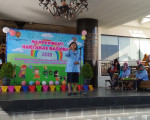 KEGIATAN HARI ANAK NASIONAL 2018
KEGIATAN HARI ANAK NASIONAL 2018
Balai Layanan Perpustakaan Badan Perpustakaan dan Arsip Daerah (BPAD) DIY menggelar kegiatan Hari Anak Nasional 2018 dengan...
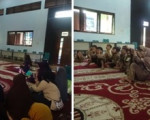 Kunjungan RA Darush Sholihin ke Rumah Baca Modern
Kunjungan RA Darush Sholihin ke Rumah Baca Modern
Senin 7 mei 2018 Rumah Baca modern mendapatkan kunjungan dari RA Darush Sholihin dengan jumlah peserta 15 anak dan 9 ustadzah....
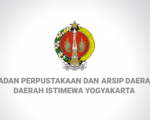 Library Trends in Era of Internet of Thing
Library Trends in Era of Internet of Thing
Library Trends in Era of Internet of Thing Writer: Hendrikus Franz Josef, M.Si Regional Library and...
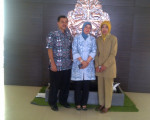 Kunjungan UPT Badan Arsip dan Perpustakaan Jawa Tengah
Kunjungan UPT Badan Arsip dan Perpustakaan Jawa Tengah
Pada hari rabu 17 Februari 2016Perpustakaan Grhatama Pustaka mendapat kunjungan dari UPT Badan Arsip danPerpustakaan Jawa Tengah...

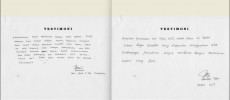 Kegiatan Penyususnan Katalog Induk Daerah (KID)
Kegiatan Penyususnan Katalog Induk Daerah (KID)